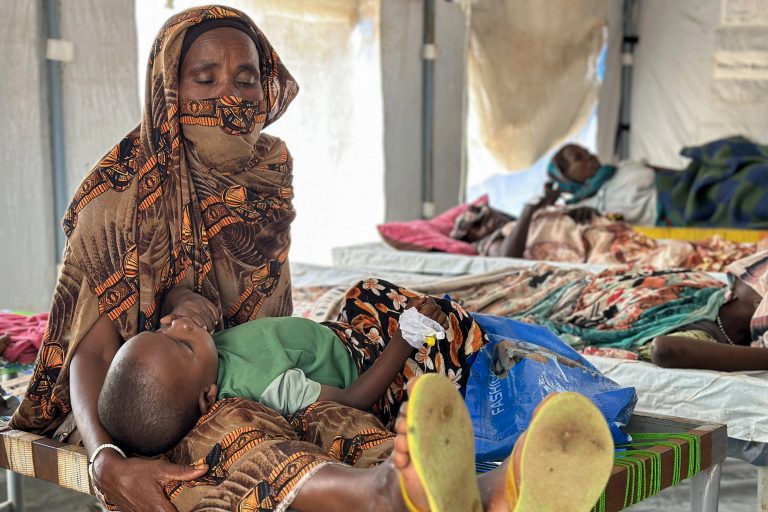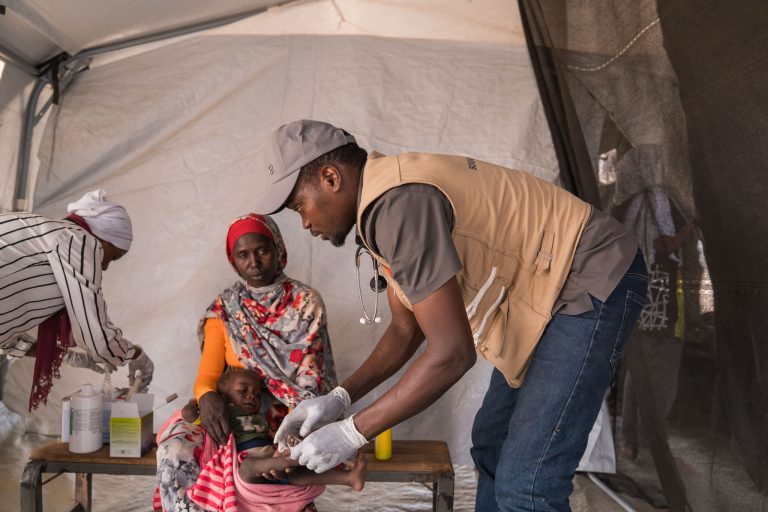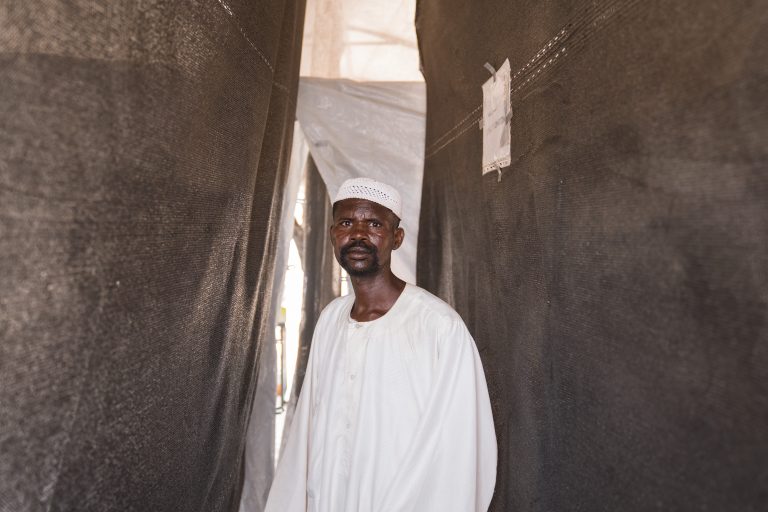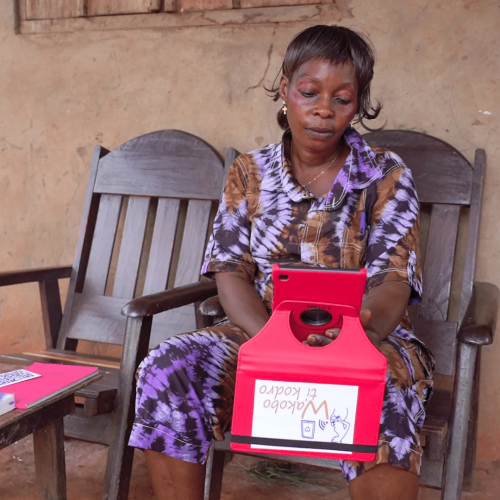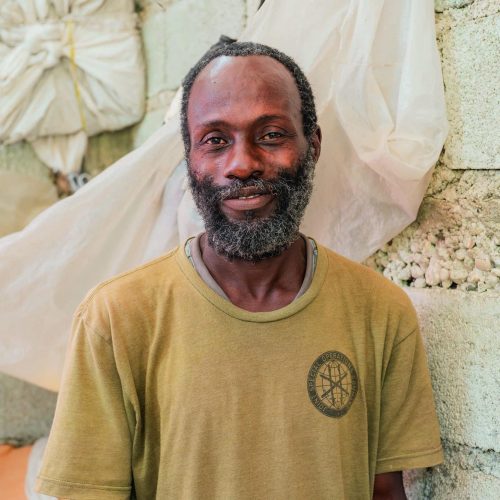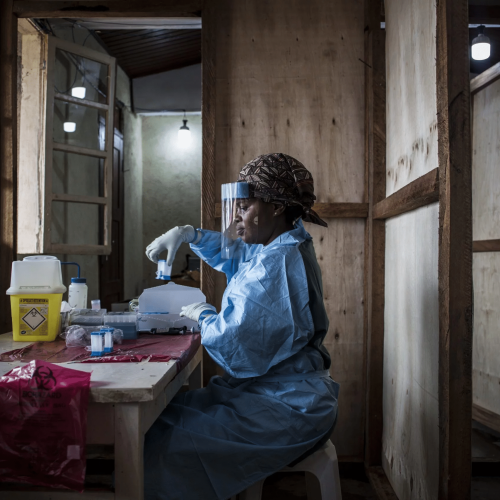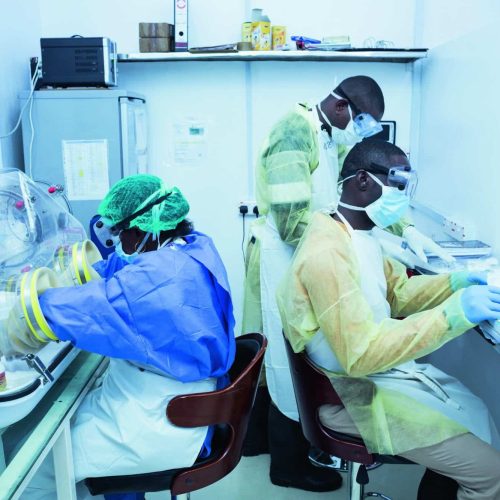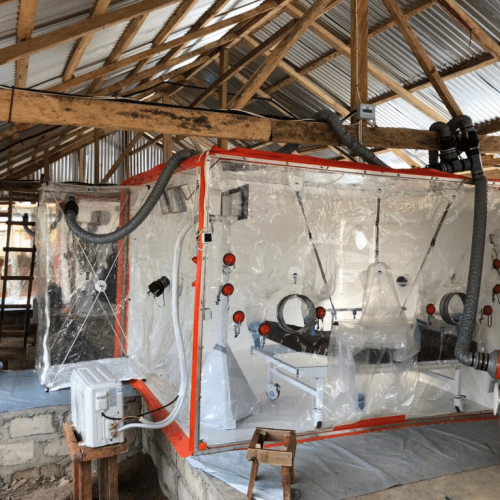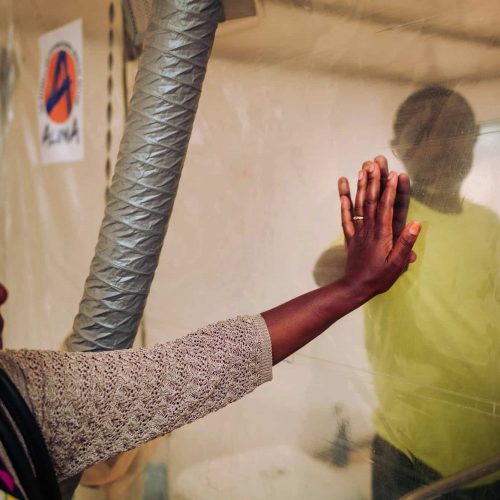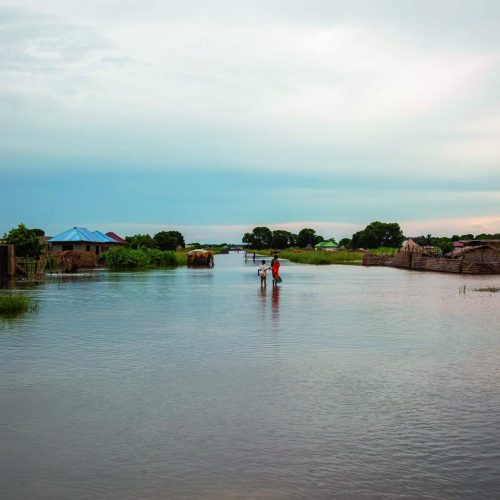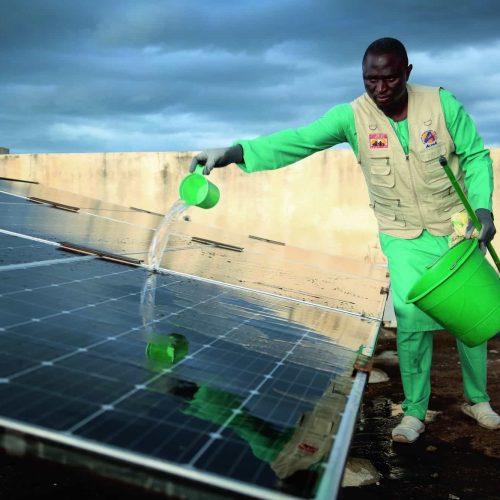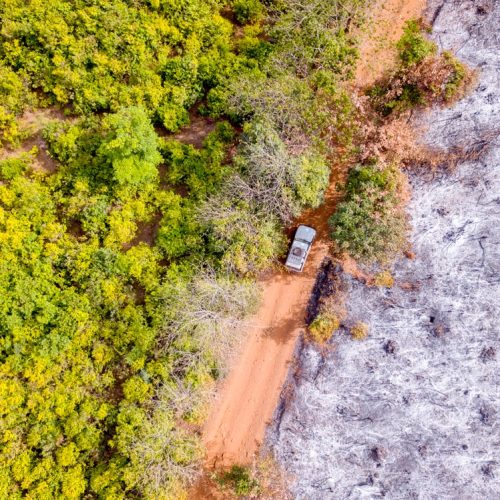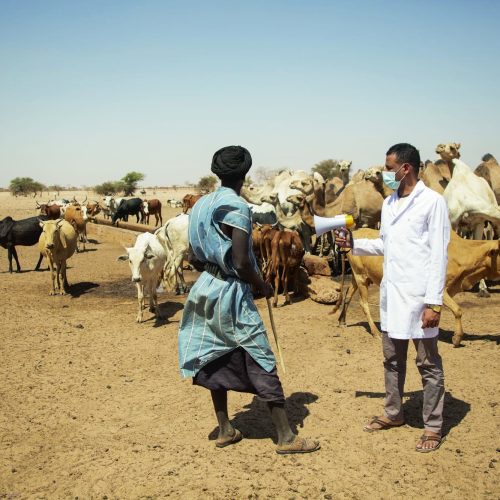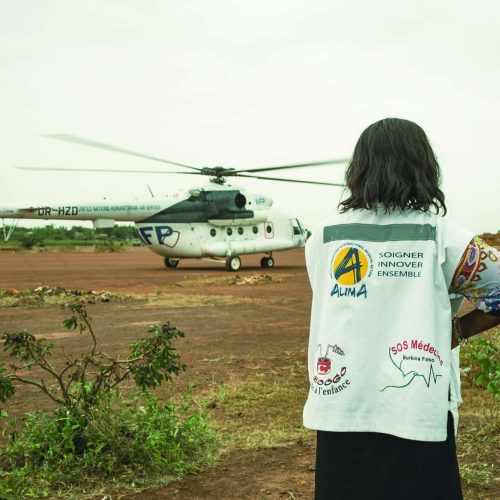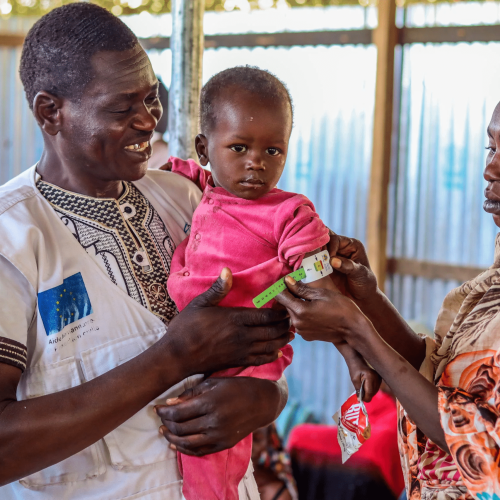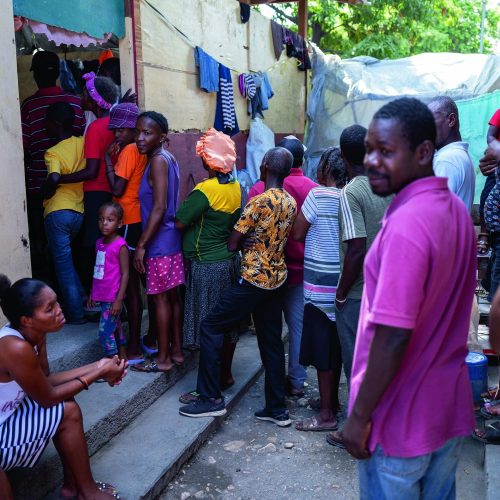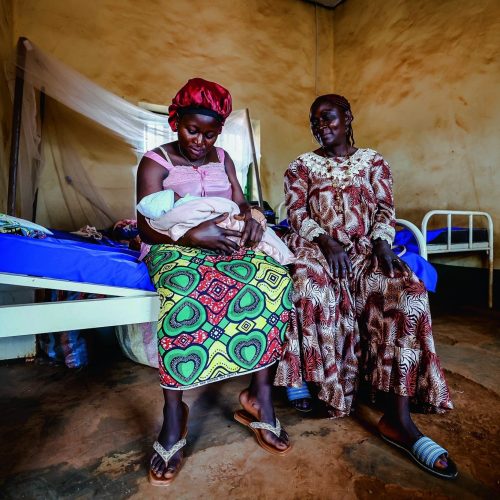Lassa fever is an acute viral hemorrhagic fever that is usually transmitted to humans from the infected urine or feces of the Mastomys rat. Human-to-human transmission is also possible, via contact with the bodily fluids of an infected person. Symptoms of the disease include fever, diarrhea, vomiting, abdominal pain, sore throat and hemorrhaging. In severe cases, organ failure can lead to death.
Lassa fever remains a neglected tropical disease, despite the virus being discovered more than 50 years ago in Nigeria. It is endemic in West Africa, but very little research has been conducted to date against this disease, for which there is no vaccine. Moreover, the recommended treatment, intravenous ribavirin, has many side effects and does not yet have strong evidence regarding its efficacy.
The LASCOPE study has allowed researchers and medical experts to better understand the factors that contribute to the death of people infected with the Lassa virus. It comprehensively documented and analyzed the clinical and biological parameters of more than 500 patients suffering from the viral hemorrhagic fever, who were admitted to the Federal Medical Centre in Owo, in Nigeria’s Ondo State, between April 2018 and March 2020. By adopting an approach that integrates research, patient care, and infection prevention and control, the LASCOPE project provides valuable insight into designing future diagnostic tools, vaccines and therapeutic trials to find a more specific treatment.
“Lassa fever is a disease that is not well known,” said Dr. Marie Jaspard, an infectious disease specialist at ALIMA and lead LASCOPE researcher. “Previous studies have all been retrospective [based on the files of Lassa fever patients who had already been discharged from the health facility before the study began], making it harder to measure the case fatality rate and cause of death among Lassa patients. The findings from the LASCOPE study are very helpful because we now know that without early care, 12% of infected patients die, most from renal or hepatic failure, especially among the elderly. Going forward, this will allow us to identify at-risk patients, and more importantly, develop and evaluate effective treatments, in order to improve patients’ chances of survival.”
The worrying impact of COVID-19 on Lassa fever
Cases of Lassa fever occur throughout the year in Nigeria. Between 2018 and 2020, the number of people infected nearly doubled, due to efforts in case identification and care provision. The number of cases usually peaks between January and May, during the dry season, when rodents increasingly enter into homes in search of food. But in 2021, health workers say they have not yet seen the peak. At the Owo Federal Medical Center, where ALIMA works alongside the Nigeria Centre for Disease Control, just 47 confirmed cases have been reported since January. This is compared to the same period in 2020, when 243 patients were admitted. Experts say this is not necessarily good news.
“The low number of cases we are seeing is likely due to a impact of the COVID-19 pandemic,” explains Dr. Jaspard. “The world is afraid of the coronavirus, and many people are afraid to come to a health center for fear of getting infected with COVID-19. This means many cases are going unreported within communities. We are witnessing a silent outbreak.”
Additionally, many of the patients coming to the center are now arriving in severe states of the disease, having waited at home for as long as possible before seeking care.
“It is vital,” Dr. Jaspard says, “that people come to a health clinic at the first signs of Lassa fever, for a proper diagnosis and care. The earlier a patient receives care, the better their chance of recovery. It is also important to continue and even scale up community awareness and outreach campaigns, as well as surveillance measures, to detect these unreported cases and convince people to come to the health centers.”
During the first two weeks of March, ALIMA teams conducted community outreach activities, including informing people about the disease and prevention measures, active case detection and contact tracing, referrals of suspected cases, and training of local health staff – all of which helped identify new cases.
Learn more about our response to Lassa fever in Nigeria
The future of Lassa fever research
Following the findings from the LASCOPE study, ALIMA and its partners have continued, with patients’ consent, to collect data on those admitted to the Lassa fever ward in Owo. Moving forward and using LASCOPE as a basis, additional nested studies are being conducted in partnership with Oxford University to better understand the cardiovascular impact of the disease and the pharmacokinetics of ribavirin, the current treatment.
Finally, ALIMA will implement a comparative clinical phase II trial, SAFARI (Pharmacokinetics, tolerability and SAfety of FAvipiravir and RIbavirin), aimed at evaluating the safety and efficacy of an antiviral drug, Favipiravir, will begin in April, at two Lassa fever treatment sites: Owo and Irrua (Nigeria’s Edo State). Favipiravir has been proven safe in humans and effective for other illnesses, such as the flu, but its efficacy for treating Lassa fever is not yet known. It will be compared to the currently used drug, ribavirin. In addition, other drugs are being evaluated for testing in Lassa fever. The ultimate goal is to compare these treatments in an international Phase III trial. Finally, a study of a vaccine candidate is in the preparatory phases and is likely to be evaluated in the field in the coming years.
All these ongoing and future research activities are part of ALIMA’s strategic priorities to promote research against viral hemorrhagic fevers in Africa.
* This study was conducted in the framework of the CORAL platform (Clinical and Operational Research Alliance) which includes the French National Institute for Health and Medical Research, Bordeaux unit (INSERM 1219), the PACCI program in Abidjan and ALIMA, and in coordination with the Nigeria Centre for Disease Control (NCDC) and World Health Organisation (WHO).
** By the CORAL platform in partnership with the Bernhard Nocht Institute for Tropical Medicine (BNITM) and the Nigeria Centre for Disease Control (NCDC).
Cover photo: As part of the LASCOPE research study in Nigeria, staff analyze samples from confirmed Lassa fever patients within the laboratory at the Owo Federal Medical Center. 2019. © Etinosa Yvonne / ALIMA


